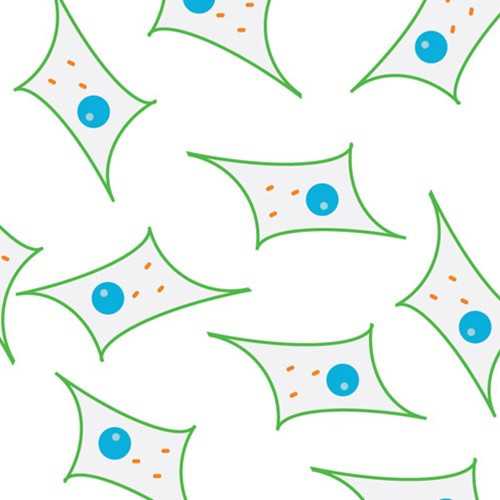HCT116/4008#13 rho-0 Cell Line
HCT116/4008#13 rho-0 cells are an mtDNA-less derivative of HCT116 (ATCC CCL-247), a human colorectal cancer cell line.
Highlights:
- Useful as recipients of mtDNA in the production of cybrids
- mtDNA depleted cells generated by transient transfection of parental cell line (HCT116) with plasmid pMA4008, which encodes HSV UL12.5M185 and EGFP proteins
- Screened for the retention of mtDNA
From the laboratory of Mikhail F. Alexeyev, PhD, University of South Alabama.
HCT116/4008#13 rho-0 cells are an mtDNA-less derivative of HCT116 (ATCC CCL-247), a human colorectal cancer cell line.
Highlights:
- Useful as recipients of mtDNA in the production of cybrids
- mtDNA depleted cells generated by transient transfection of parental cell line (HCT116) with plasmid pMA4008, which encodes HSV UL12.5M185 and EGFP proteins
- Screened for the retention of mtDNA
From the laboratory of Mikhail F. Alexeyev, PhD, University of South Alabama.
| Product Type: | Cell Line |
| Name: | HCT116/4008#13 rho-0 |
| Cell Type: | Colonic adenocarcinoma cells |
| Species: | Homo sapiens |
| Morphology: | Epithelial |
| Source: | Rectum |
| Biosafety Level: | BSL-2 |
| Growth Conditions: | DMEM high glucose, 10% FBS, 1 mM pyruvate, 50 ug/ml uridine |
| Subculturing: | Split 1:3 twice a week, or as needed. Change medium twice a week and do not grow to confluence. Slow growth, medium acidification. |
| Cryopreservation: | Growth medium with 10% DMSO |
| Comments: | Do not allow for medium to acidify as it may lead to cell death. |
| Storage: | LN2 |
| Shipped: | Dry Ice |
HCT116/4008#13 rho-0 cells are an mtDNA-less derivative of HCT116 (ATCC CCL-247) cell line. These are human colonic adenocarcinoma cells derived from a 48-year-old male (PMID: 7214343). The parental cell line is nearly diploid, with the modal chromosome number of 45 (62%). To generate HCT116/4008#13 rho-0, HCT116 cells were transiently transfected with plasmid pMA4008, which encodes HSV UL12.5M185 and EGFP proteins. HSV UL12.5M185 protein induces mtDNA depletion by an unknown mechanism. After transfection, cells were cloned in the DMEM medium supplemented with 50 ug/ml uridine and 1 mM sodium pyruvate, and resulting clones were screened for the retention of mtDNA.
- Khozhukhar, N., Spadafora, D., Rodriguez, Y., and Alexeyev, M. (2018) Elimination of Mitochondrial DNA from Mammalian Cells. Curr. Protoc. Cell Biol. 78, 20 11 21-20 11 14.
If you publish research with this product, please let us know so we can cite your paper.


